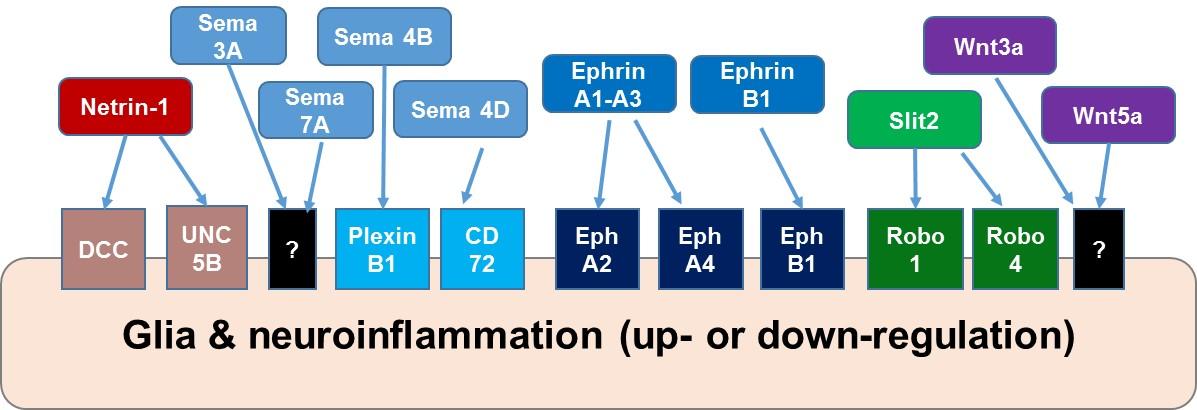Articles
Article Tools
Stats or Metrics
Article
Review Article
Exp Neurobiol 2019; 28(3): 311-319
Published online June 26, 2019
https://doi.org/10.5607/en.2019.28.3.311
© The Korean Society for Brain and Neural Sciences
Axon Guidance Molecules Guiding Neuroinflammation
Won Suk Lee1,2, Won-Ha Lee3, Yong Chul Bae4, and Kyoungho Suk1,2*
1Department of Pharmacology, School of Medicine, Kyungpook National University, Daegu 41944, Korea.
2Brain Science and Engineering Institute, Kyungpook National University, Daegu 41944, Korea.
3BK21 Plus KNU Creative BioResearch Group, School of Life Sciences, Kyungpook National University, Daegu 41566, Korea.
4Department of Anatomy and Neurobiology, School of Dentistry, Kyungpook National University, Daegu 41940, Korea.
Correspondence to: *To whom correspondence should be addressed.
TEL: 82-53-420-4835, FAX: 82-53-256-1566
e-mail: ksuk@knu.ac.kr
Abstract
Axon guidance molecules (AGMs), such as Netrins, Semaphorins, and Ephrins, have long been known to regulate axonal growth in the developing nervous system. Interestingly, the chemotactic properties of AGMs are also important in the postnatal period, such as in the regulation of immune and inflammatory responses. In particular, AGMs play pivotal roles in inflammation of the nervous system, by either stimulating or inhibiting inflammatory responses, depending on specific ligand-receptor combinations. Understanding such regulatory functions of AGMs in neuroinflammation may allow finding new molecular targets to treat neurodegenerative diseases, in which neuroinflammation underlies aetiology and progression.
Graphical Abstract

Keywords: Axon guidance molecule, Neuroinflammation, Glia, Neurodegenerative disease


